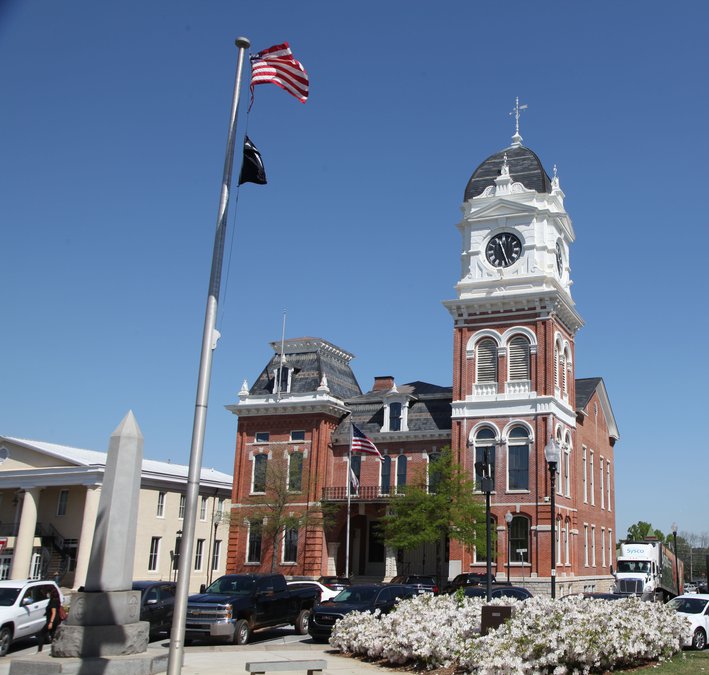COVINGTON, Ga. — Some commissioners' frustration with the pace of distribution of federal COVID-19 relief funds in Newton County boiled over this week and the county manager felt most of the heat.
Board of Commissioners members also agreed to a special called meeting Nov. 1 at 6 p.m. to devise plans for determining eligibility and how $10.8 million in federal American Rescue Plan funds will be distributed to Newton residents who have suffered the economic effects of COVID-19.
The Board will meet after a subcommittee investigates what some other Georgia counties have done to expedite distribution and gives a recommendation.
Commissioners voted for the Nov. 1 meeting after County Manager Lloyd Kerr said he placed a request for proposals (RFP) on the county website seeking a consultant to help distribute and administer the money once the county receives guidelines from the U.S Treasury Department that the county has waited on for months.
The RFP will receive responses for 30 days. Kerr said a third party manager will administer the program "objectively and fairly" and make sure all regulations are followed and not be "subject to any type of local or political pressure for any type of favoritism."
However, Sanders and Commissioner J.C. Henderson sharply criticized Kerr for what Henderson said was lack of effort in finding a way to more rapidly get the funds to those needing it.
Sanders said she knew of some residents who needed to pay electric bills reaching $800 in some cases.
"They didn't just lay on their behinds," she said. "They couldn't work because they had COVID."
She also questioned why the county government just now was in the first stages of hiring a consultant to manage a $10 million ARPA fund when it already had the staff to manage a $78 million annual budget.
"There's something we can put in place to assist our citizens. We have to be proactive instead of reactive," she said.
"We are a reactive government in Newton County. We do not plan for anything," Sanders said.
Henderson, a frequent critic of Kerr, said the county manager should have been able to find someone to assist him with hiring a consultant long before now.
"We asked him to do something and he didn't do it," Henderson told Board members.
He also said Kerr did not care about moving more quickly to distribute the money because Kerr did not directly "see" the need for the money that Henderson did in his district.
"These people are coming to us because we're the people closest to them," he said.
Henderson said he wanted an attorney to help Kerr with the legal aspects of expediting distribution.
He first said he wanted County Attorney Patrick Jaugstetter for the job and later made a motion for former county attorney Tommy Craig.
The Board of Commissioners fired Craig from the county attorney position in 2015 amid claims of gaining financially from a reservoir project. It then hired Jaugstetter's firm, Jarrard and Davis, as the county government attorney — though the Tax Commissioner and Sheriff's Office kept Craig as their attorney.
Henderson later withdrew his motion in favor of a motion by Sanders for the Nov. 1 meeting.
Kerr said he had been delayed in finalizing a job description until recently because of the need to focus on the 2022 budget and property tax rate before commissioners approved it in mid-August.
He also said the complexity of what the consultant job entails — such as dealing with federal regulations and making sure recipients are qualified — and the research needed was time-consuming.
"This is something new in terms of the type of project this is," Kerr said. "I have got to be very careful with the money."
Sanders said Rockdale County had already distributed some of its funds. Kerr responded that some Georgia counties may have distributed the money with the help of much larger staffs than Newton County has.
Newton County still does not have the manpower or expertise to administer the distribution, he said.
He said 80% of Georgia counties still have not distributed the money because they also await final federal guidelines.
The Association of County Commissioners of Georgia (ACCG), which is the state's top training and service provider for county commissioners, also says on its website it is waiting to send out U.S. Treasury guidance on distribution to counties statewide when "it becomes available."
Jaugstetter said he works with other county governments in Metro Atlanta and each needs its own specific guidelines.
He said a consultant can evaluate the local area to come up with ways tailored to distributing funds in Newton County.
Henry County used a consultant and in-house staff to do "all the work" before its county commission decided how to distribute its money.
"This is a big undertaking ... and it does have strings attached," he said.
Commissioner Ronnie Cowan warned that the federal government "was notorious for throwing money" at local needs without guidance on how it should be spent and then telling local officials they violated the law. He said he wanted federal guidance in place before he approved spending the money.
"You better have some guidelines in place because the federal government is going to want to see it, especially if you get in trouble," he said.
He said guidelines need to be established so that the money is used in a way in which it can be easily audited.
"The way y'all are going about it right now, I wouldn't put my name on none of it. I don't plan on going to jail for none of y'all," Cowan said.
Henderson said some on the board were waiting on a "perfect way to do it" and were "not trying to expedite it, they're trying to prolong it."
"We should stop putting people in office who, when you need help, they turn their back on you," he said. "There's nobody going to jail for helping somebody.”
The $10.8 million is the first of two installments totaling $21.7 million the county will receive in ARPA funds.





